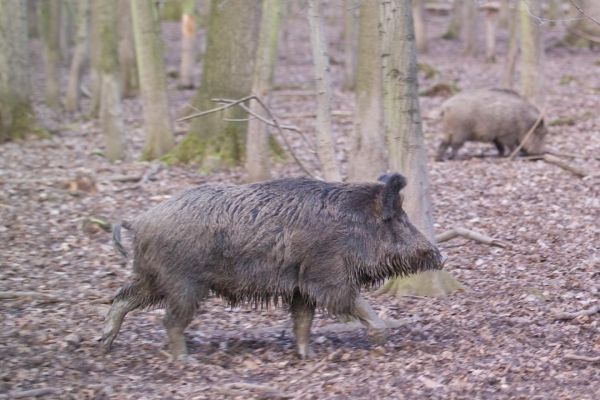The European Food Safety Authority (EFSA) has published a new scientific report on the current status of the spread of African swine fever (ASF) within the EU. The report describes, among other things, which management measures EU member states should take if an isolated outbreak of the virus infection occurs, i.e. if it is detected far away from the current spread. The scientific basis for these recommendations comes from a modelling team based at the Helmholtz Centre for Environmental Research (UFZ) in Leipzig.
Compared with the previous year, African swine fever has continued to spread. New outbreaks far from the actual centre of the epidemic in north-eastern Europe have been recorded in Romania and Bulgaria. And even in Belgium, just 60 kilometres from the German border, numerous dead wild boars have been found. It is clear that the virus has found its way into Belgium by humans and not by wild boars movements or free-range domestic pigs. There is great concern in the EU that African swine fever may occur suddenly everywhere, thereby having a significant economic impact.
The UFZ modelling team led by Dr Hans-Hermann Thulke was therefore commissioned by the European Food Safety Authority (EFSA) to investigate three different baseline scenarios and evaluate current management measures: Firstly, ASF-free areas located far away from the current centre of the epidemic. Secondly, areas still free of ASF but located close to ASF-infected areas and at higher infection risk due to wild boars. Thirdly, those areas where the virus suddenly occurs as an isolated case located far away from the current ASF epidemic requiring immediate action.
Read more at Helmholtz Centre for Environmental Research (UFZ)
Image: Compared with the previous year, African swine fever has spread further. (Credit: UFZ / André Künzelmann)


